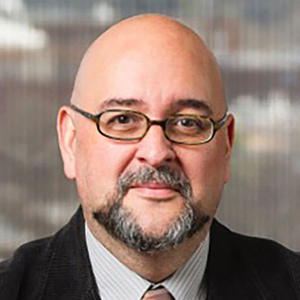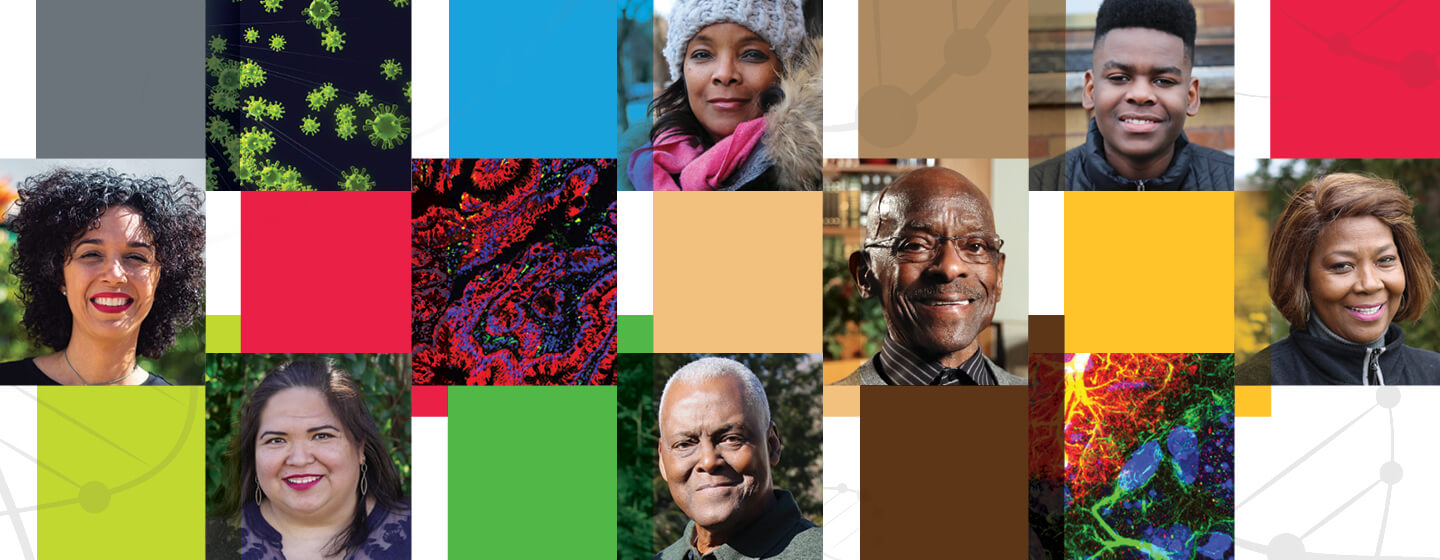Fellows of the AACR Academy:
Leading Progress Against Cancer
The AACR Academy was established in 2013 to recognize and honor distinguished scientists whose major scientific contributions have propelled significant innovation and progress against cancer. While their individual contributions to the field have accelerated progress against cancer, the Fellows of the AACR Academy also guide that progress, providing advice and counsel to the organization’s leadership on questions of science and public policy.
AACR Academy Steering Committee: New President‑Elect
The AACR Academy is governed by an elected president and Steering Committee, who provide sound scientific and policy guidance to the AACR leadership. In June, the Fellows elected Charles L. Sawyers, MD, FAACR, as the 2020–2021 president-elect of the Academy. He will assume the presidency and succeed current AACR Academy President Judy E. Garber, MD, MPH, FAACR, during the AACR Annual Meeting 2021.
AACR Academy President (2019–2021)
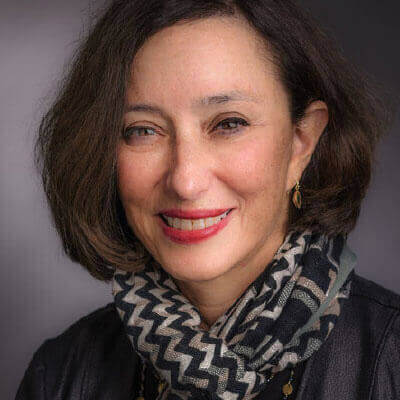
Judy E. Garber, MD, MPH, FAACR
AACR Academy President-Elect (2020–2021)

Charles L. Sawyers, MD, FAACR
AACR Academy Steering Committee
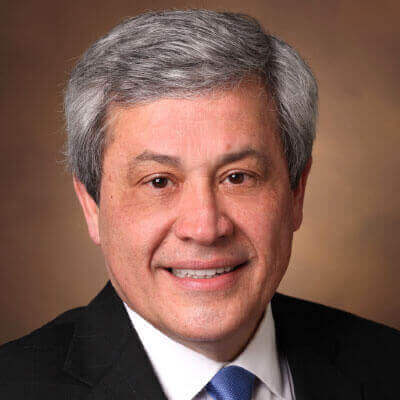
Carlos L. Arteaga, MD, FAACR
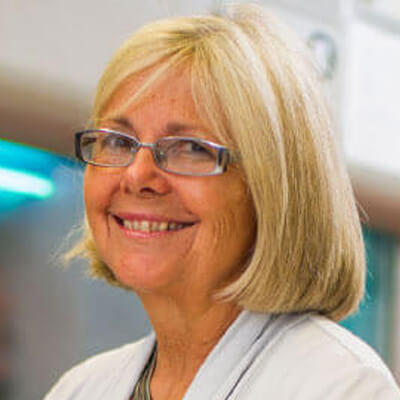
Joan S. Brugge, PhD, FAACR

Michael A. Caligiuri, MD, FAACR
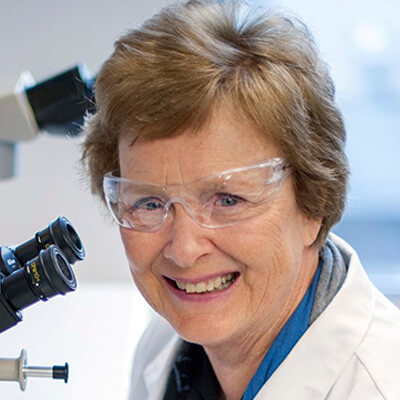
Suzanne Cory, PhD, FRS, FAACR
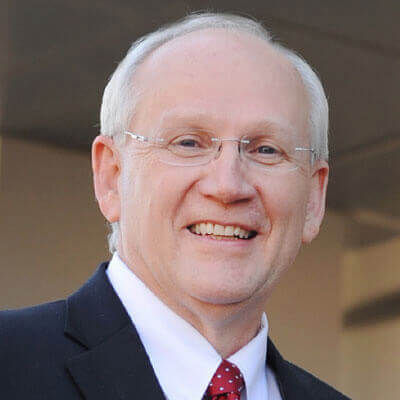
Raymond N. DuBois, MD, PhD, FAACR

Elaine Fuchs, PhD, FAACR
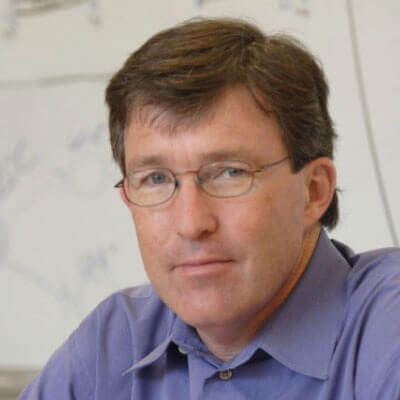
Tyler Jacks, PhD, FAACR
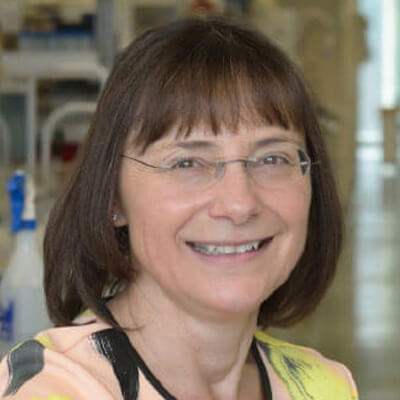
Karen H. Vousden, PhD, FAACR
Class of 2020
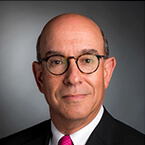
Myles A. Brown, MD, FAACR
Dana-Farber Cancer Institute
Harvard Medical School
Boston, Massachusetts
For elucidating the role of steroid hormones and their receptors in promoting the onset and progression of various hormone-dependent malignancies and for the discovery of regulatory complex components such as the p160 class of transcriptional co-activators that facilitate the epigenetic regulation of steroid receptor activity.

Judith Campisi, PhD, FAACR
Buck Institute for Research on Aging
Lawrence Berkeley National Laboratory
Berkeley, California
For groundbreaking contributions to the understanding of the links between aging and cancer and for her research related to identifying the molecular mechanisms associated with cellular senescence, aging, and tumorigenesis, which has defined the role of DNA damage and repair in genomic stability and premature aging.
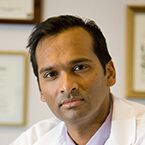
Arul Chinnaiyan, MD, PhD, FAACR
Howard Hughes Medical Institute
University of Michigan
Ann Arbor, Michigan
For demonstrating the presence of chromosomal rearrangements in solid tumors including the identification of the TMPRSS2-ETS family of gene fusions and for harnessing such discoveries to define novel underlying pathologies in prostate cancer as well as other epithelial cancers.
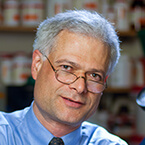
Alan D. D'Andrea, MD, FAACR
Dana-Farber Cancer Institute
Harvard Medical School
Boston, Massachusetts
For pivotal contributions to the field of DNA damage and repair that have defined the specific defects responsible for the development of Fanconi Anemia and for elucidating the role of nuclear protein complexes in chromatin remodeling, cell cycle checkpoints, and DNA repair.

Mark M. Davis, PhD, FAACR
Stanford University School of Medicine
Stanford, California
For identifying the first T cell receptor genes responsible for the detection of foreign antigens, contributing to the characterization of T cell receptor variable regions, and for developing imaging techniques capable of capturing interactions that occur at immunological synapses.
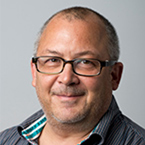
Gregory J. Hannon, PhD, FAACR
University of Cambridge
Cambridge, United Kingdom
For fundamental contributions to characterizing the role of cyclin-dependent kinases and small RNAs including microRNAs, piwi-interacting RNAs, and short-hairpin RNAs in cell cycle regulation, carcinogenesis, and drug development.
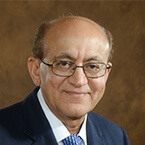
Rakesh K. Jain, PhD, FAACR
Harvard Medical School and Massachusetts General Hospital
Boston, Massachusetts
For landmark studies describing and highlighting the relationship between the tumor microenvironment and surrounding vasculature and for his investigations involving antiangiogenic therapy to induce tumor vascular normalization that have resulted in improved survival rates for a number of solid tumors.
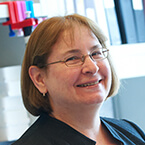
Maria Jasin, PhD, FAACR
Memorial Sloan Kettering Cancer Center
New York, New York
For illuminating the role of homologous recombination in maintaining genetic stability, demonstrating the crucial role of BRCA1 and BRCA2 in facilitating such genetic events, and for proving that BRCA2 loss, coupled with aberrant p53 activity in breast cells, can result in replication stress and subsequent tumorigenesis.
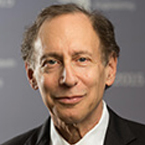
Robert S. Langer, ScD, FAACR
Massachusetts Institute of Technology
Cambridge, Massachusetts
For vast contributions and discoveries in the field of drug delivery systems and for spearheading the fields of tissue engineering and regenerative medicine, generating synthetic polymer systems capable of facilitating controlled-drug release as well as serving as platforms for the engineering of blood vessels, cartilage, and skin.
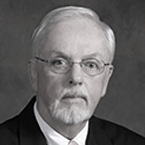
Bert W. O'Malley, MD, FAACR
Dan L Duncan Comprehensive Cancer Center
Baylor College of Medicine
Houston, Texas
For pioneering research focused on the understanding of molecular endocrinology, gene regulation, and steroid receptor biology that has revealed how intracellular hormones and cofactors function at the DNA level to regulate protein production, affect cellular function, and modulate cancer cell metastasis.
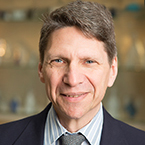
Drew Mark Pardoll, MD, PhD, FAACR
The Sidney Kimmel Comprehensive Cancer Center
Johns Hopkins University
Baltimore, Maryland
For enriching the understanding of tumor immunology and immunotherapy through his discovery of gamma-delta T cells, natural killer T cells, and interferon-producing killer dendritic cells, and for his contributions to developing GVAX and Listeria monocytogenes-based cancer vaccines.
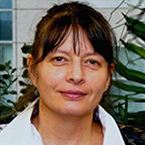
Kornelia Polyak, MD, PhD, FAACR
Dana-Farber Cancer Institute
Harvard Medical School
Boston, Massachusetts
For dissecting the role of intratumor heterogeneity in breast cancer and metastatic disease to develop risk assessment and personalized cancer therapy models and for extensively characterizing the metastatic potential of polyclonal tumors compared to monoclonal tumors.

Peter J. Ratcliffe, FRS, FAACR
University of Oxford
Francis Crick Institute
London, United Kingdom
For his landmark, Nobel Prize-winning contributions to our understanding of the molecular responses to oxygen depletion, specifically the identification of oxygen sensing and signaling pathways that link hypoxia-inducible factor 1 to the availability of oxygen, which has proved critically important to the understanding of tumor initiation and progression.

Antoni Ribas, MD, PhD, FAACR
University of California Los Angeles Medical Center
Los Angeles, California
For his seminal clinical research contributions that have led to the development of pembrolizumab as the first-in-class approved anti-PD-1 immunotherapy for the treatment of melanoma, for his characterization of BRAF, CTLA-4, and MEK in cancer, and for deciphering molecular mechanisms responsible for immunotherapeutic resistance, which has since fueled additional efforts to understand the relationship between the immune system and cancer.
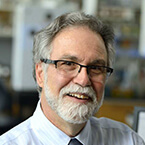
Gregg L. Semenza, MD, PhD, FAACR
Johns Hopkins University School of Medicine
Baltimore, Maryland
For his revolutionary, Nobel Prize-winning contributions toward uncovering the molecular mechanisms of oxygen regulation within cells and for discovering hypoxia-inducible factor 1, critical for cellular adaptation to changing oxygen levels, which has had far-reaching implications for the treatment of numerous diseases characterized by low oxygen levels, including diabetes, heart disease, and cancer.
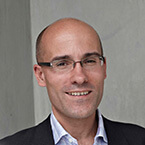
Charles Swanton, MBPhD, FRCP, FMedSci, FRS, FAACR
The Francis Crick Institute
University College London Cancer Institute
London, United Kingdom
For his innovative research focused on identifying molecular mechanisms of cancer evolution and its impact on drug resistance and patient stratification and for demonstrating the crucial biological connection between intratumor heterogeneity and clinical cancer biomarker efficacy.
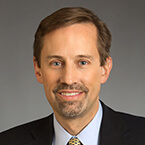
David A. Tuveson, MD, PhD, FAACR
Cold Spring Harbor Laboratory Cancer Center
Cold Spring Harbor, New York
St. Louis, Missouri
For his trailblazing contributions to establishing human pancreatic cancer mouse models, for developing preclinical and clinical therapeutic strategies for the disease, and for characterizing many of the barriers to successful pancreatic cancer treatment, including poor drug delivery and the presence of survival factors in the microenvironment.

Michael Wigler, PhD, FAACR
Cold Spring Harbor Laboratory
Cold Spring Harbor, New York
For his renowned contributions to cancer genetics and the establishment of genetically engineered animal cells, and for first describing a role for the RAS gene family in human cancer and describing how point mutations are capable of activating the oncogenic potential of select genes.
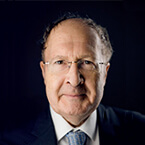
Sir Gregory P. Winter, CBE, FRS, FMedSci, FAACR
Trinity College
Cambridge, United Kingdom
For Nobel Prize-winning scientific breakthroughs including the development of the first humanized antibodies, the establishment of refined phage display technology that has led to the development of adalimumab, the first marketed fully human antibody approved by the FDA, and collective contributions to the generation of therapeutic antibodies for the treatment of various cancers and autoimmune diseases.
SCIENTIFIC ACHIEVEMENT AWARDS AND LECTURESHIPS
The AACR’s mission to prevent and cure all cancers is advanced by both innovative science and innovative leadership. AACR Scientific Achievement Awards and Lectureships honor both types of innovators, acknowledging the individuals who make breakthrough discoveries and those who make such breakthroughs possible.
Recognizing a Model of Team Science
With its 2020 Team Science Award, the AACR highlighted one of the fundamental projects in the cancer research community. The award was presented to the founders and the current project team members of The Cancer Genome Atlas (TCGA) project. Since its founding in 2006—through the seminal contributions of Anna D. Barker, PhD, and Francis S. Collins, MD, PhD—TCGA has brought together investigators from a broad range of disciplines and institutions to create a detailed catalog of genomic changes associated with specific types of cancer. The award recognized the members of the team (see below) for their extensive collaborations and ongoing efforts to generate one of the largest-ever sets of tumor characterization data.
Honoring Excellence in Pediatric Cancer Research
The AACR’s capacity for innovation also extends to the structure of its awards. In 2020, the AACR announced a new collaboration with the St. Baldrick’s Foundation to establish the AACR-St. Baldrick's Foundation Award for Outstanding Achievement in Pediatric Cancer Research. The award recognizes major research discoveries in pediatric cancer research and honors an individual who has significantly contributed to any area of pediatric cancer research, resulting in the fundamental improvement of the understanding and/or treatment of pediatric cancer.
The innovative aspect of this new award is its recognition of early-career scientists. The award recipient is also afforded an opportunity to nominate junior faculty to receive a one-year, $75,000 AACR-St. Baldrick’s Foundation Pediatric Cancer Research Fellowship—sustaining the pipeline of cancer scientists and supporting the next generation of scientific excellence.
2020 Award and Lectureship Recipients
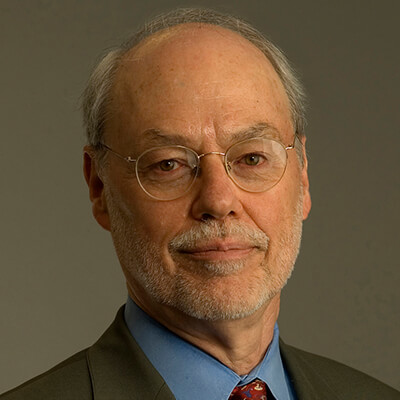
Phillip A. Sharp, PhD, FAACR
Massachusetts Institute of Technology
Cambridge, Massachusetts
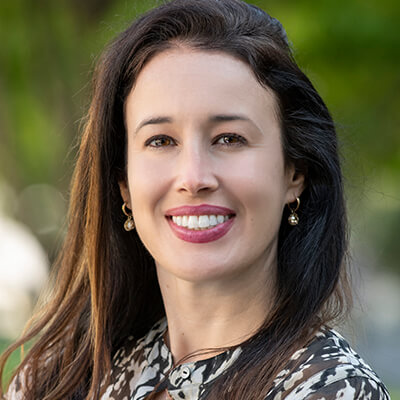
Cigall Kadoch, PhD
Dana-Farber Cancer Institute
Boston, Massachusetts
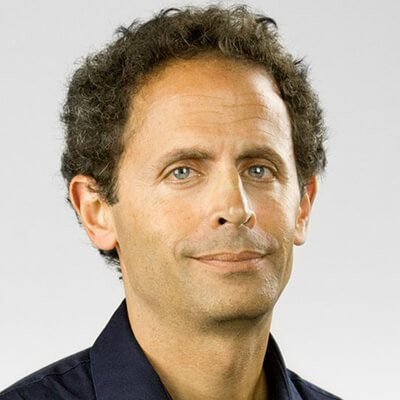
Benjamin F. Cravatt III, PhD
The Scripps Research Institute
La Jolla, California
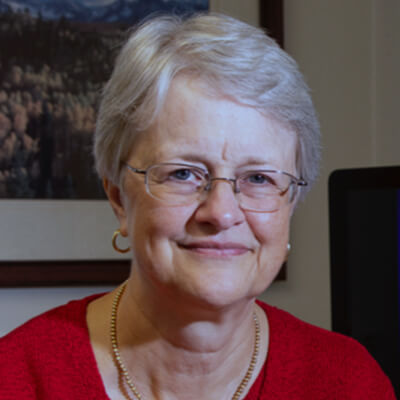
Susan E. Hankinson, ScD, MPH
University of Massachusetts
Amherst, Massachusetts
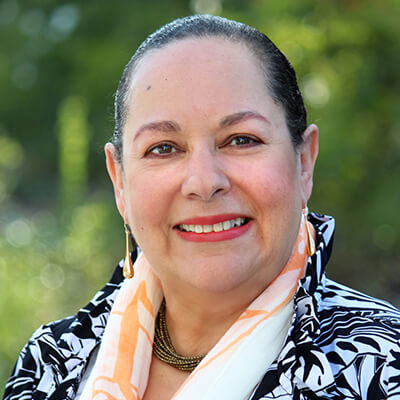
Lourdes Báezconde-Garbanati, PhD, MPH
University of Southern California
Los Angeles, California
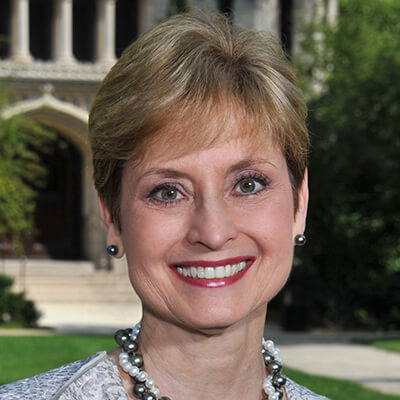
Michelle M. Le Beau, PhD
University of Chicago Medicine, Comprehensive Cancer Center
Chicago, Illinois

Sherene Loi, MBBS, FRACP, PhD, FAHMS
Peter MacCallum Cancer Centre, University of Melbourne
Melbourne, Victoria, Australia
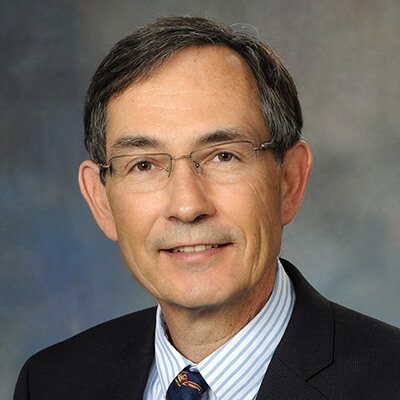
Christopher I. Amos, PhD
Baylor College of Medicine
Houston, Texas
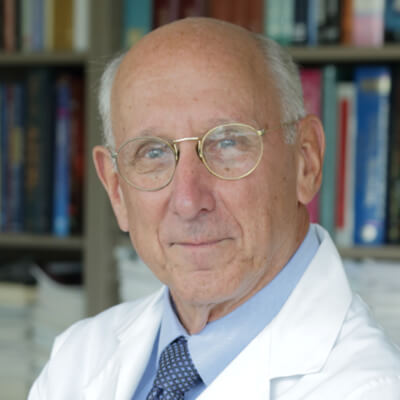
Steven A. Rosenberg, MD, PhD, FAACR
National Cancer Institute
Bethesda, Maryland
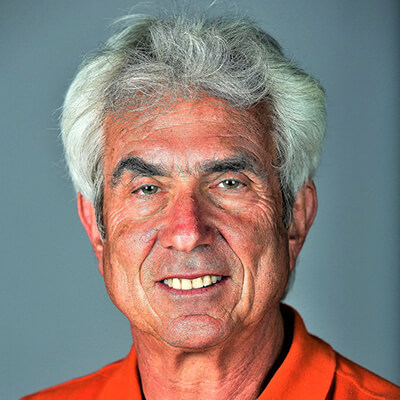
Michael Karin, PhD, FAACR
University of California, San Diego
La Jolla, California
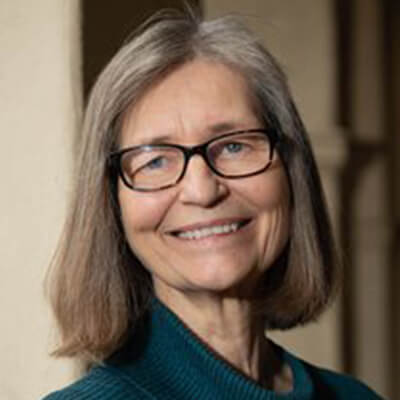
Barbara J. Wold, PhD
California Institute of Technology
Pasadena, California

Jedd D. Wolchok, MD, PhD
Memorial Sloan Kettering Cancer Center
New York, New York
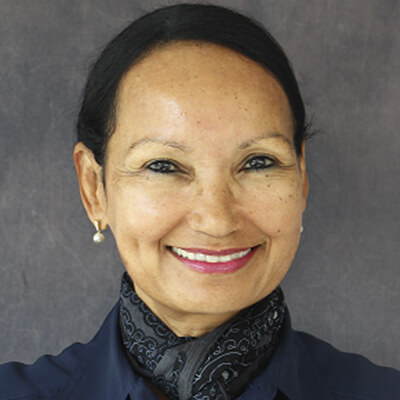
Lisa A. Newman, MD, MPH
Weill Cornell Medical Center
New York, New York

Tyler Jacks, PhD, FAACR
Massachusetts Institute of Technology
Cambridge, Massachusetts

James R. Downing, MD
St. Jude Children’s Research Hospital
Memphis, Tennessee
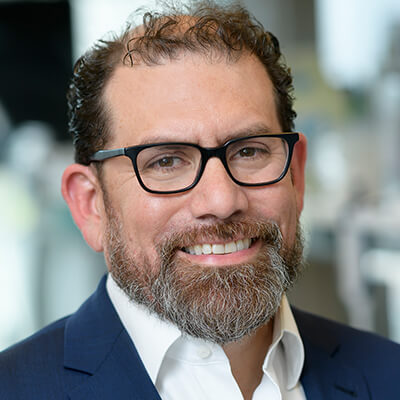
Luis A. Diaz, MD
Memorial Sloan Kettering Cancer Center
New York, New York

Patricia S. Steeg, PhD
National Cancer Institute
Bethesda, Maryland
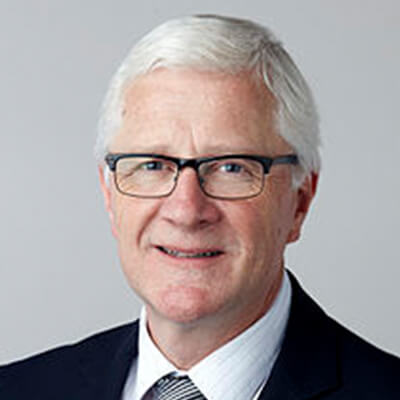
John E. Dick, PhD, FAACR
Ontario Institute for Cancer Research
Toronto, Ontario, Canada
AACR Team Science Award
The Cancer Genome Atlas (TCGA) Founding Members
National Institutes of Health, Bethesda, Maryland
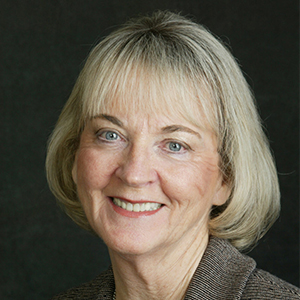
Anna D. Barker, PhD
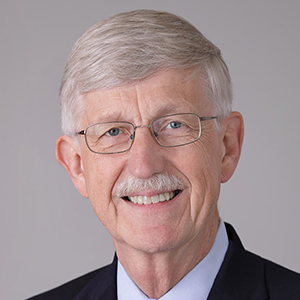
Francis S. Collins, MD, PhD
During Launch of TCGA Pilot Projects
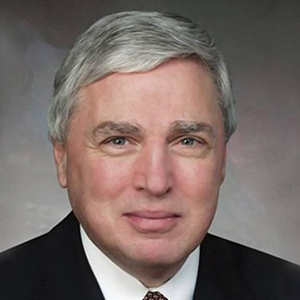
Andrew C. von Eschenbach, MD
Director: 2002–2006
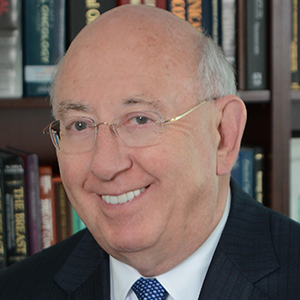
John E. Niederhuber, MD
Director: 2006–2010
Working Group on Biomedical
Technology Leaders
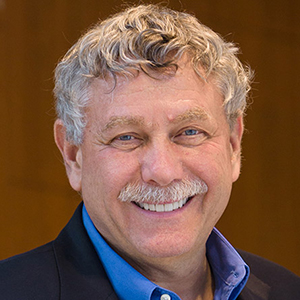
Eric S. Lander, PhD, FAACR (Cochair)
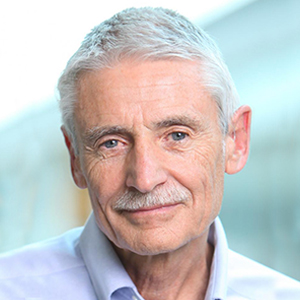
Leland H. Hartwell, PhD, FAACR (Cochair)
The Cancer Genome Atlas (TCGA) Current Project Team
National Institutes of Health, Bethesda, Maryland
